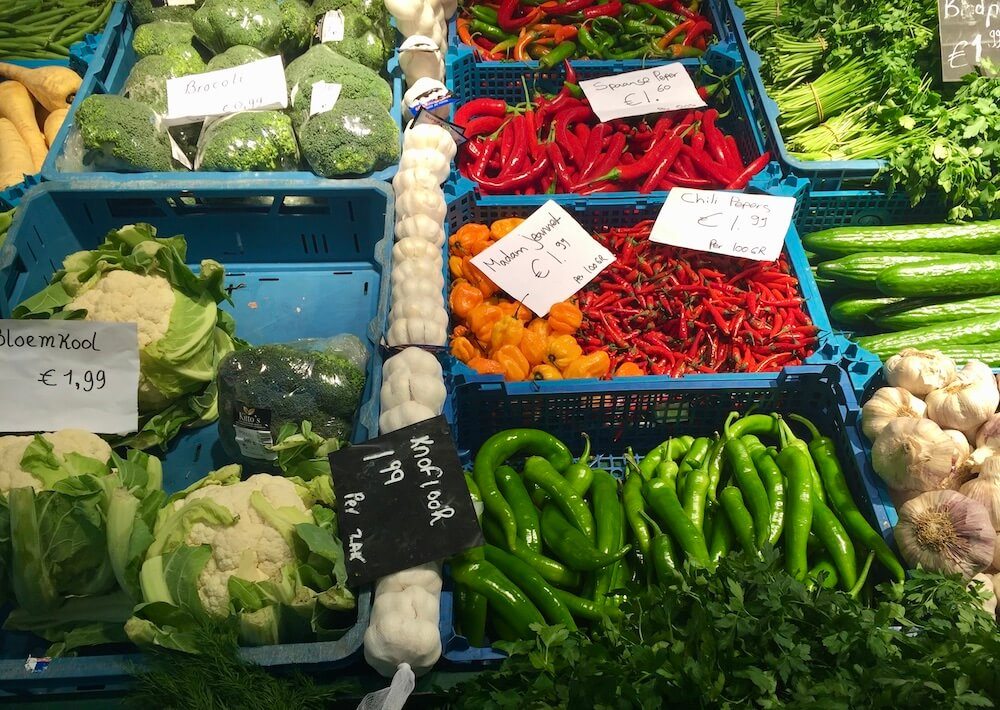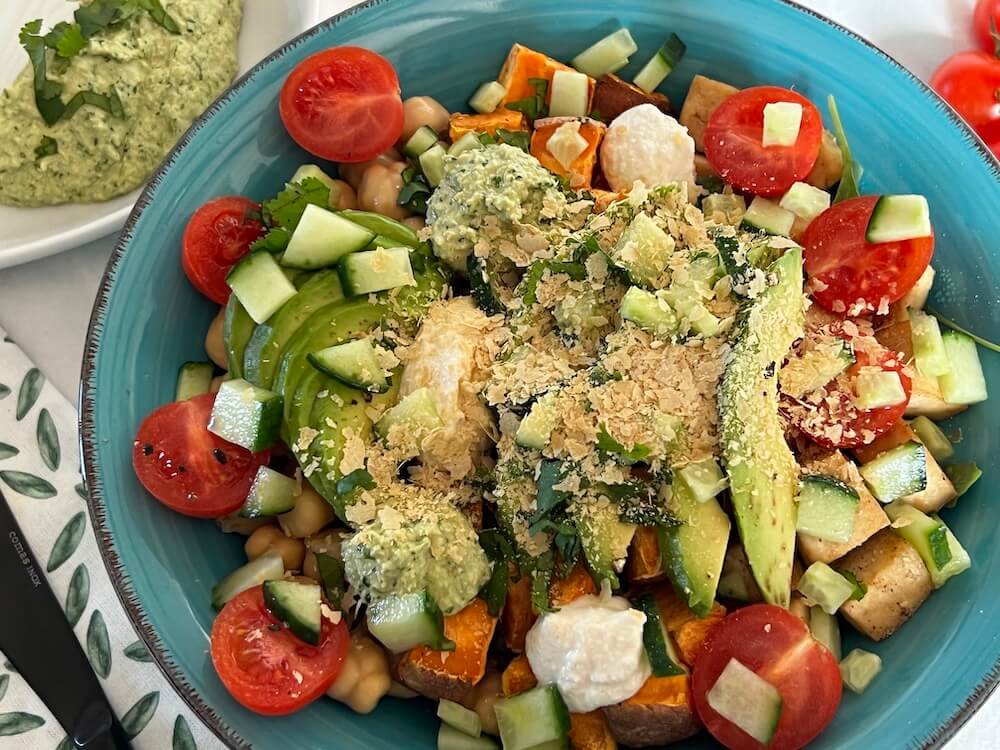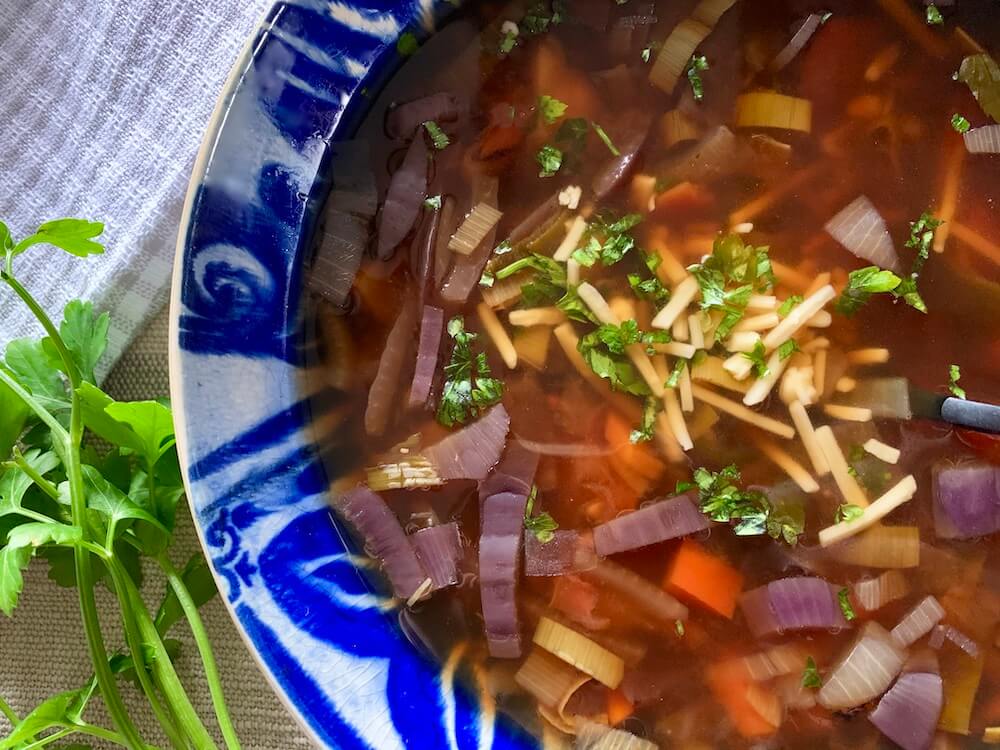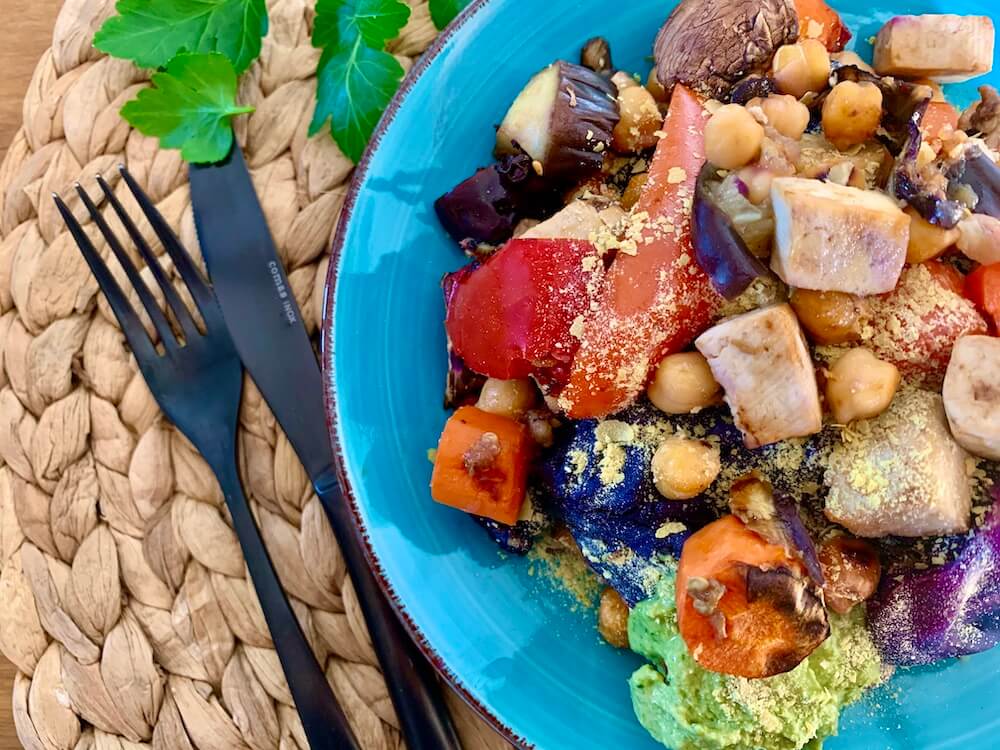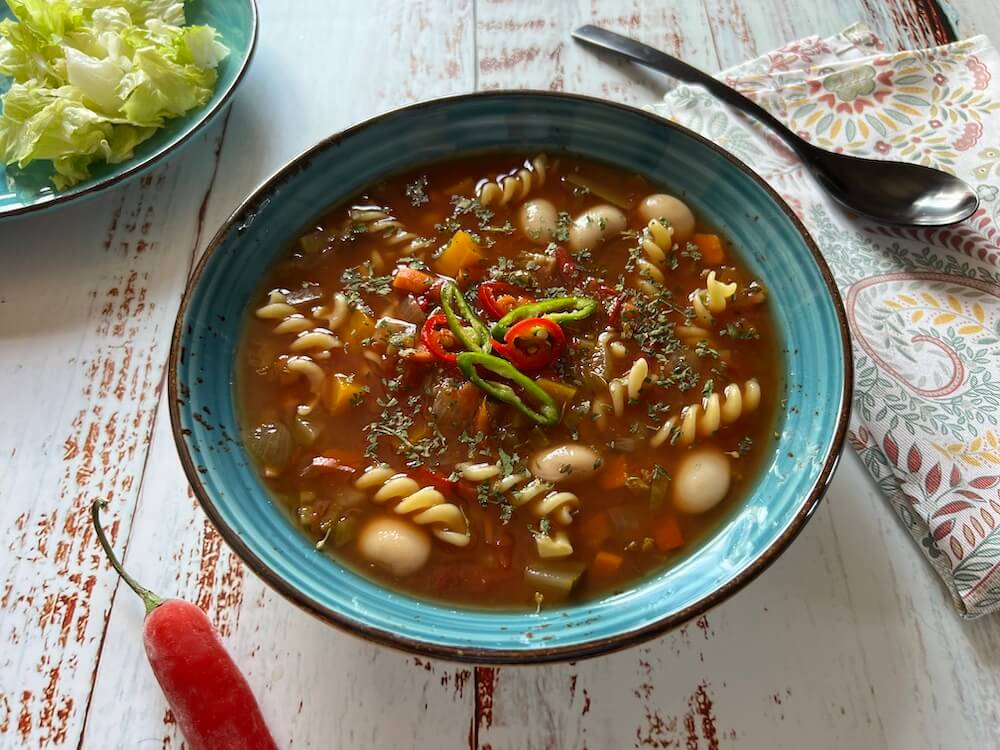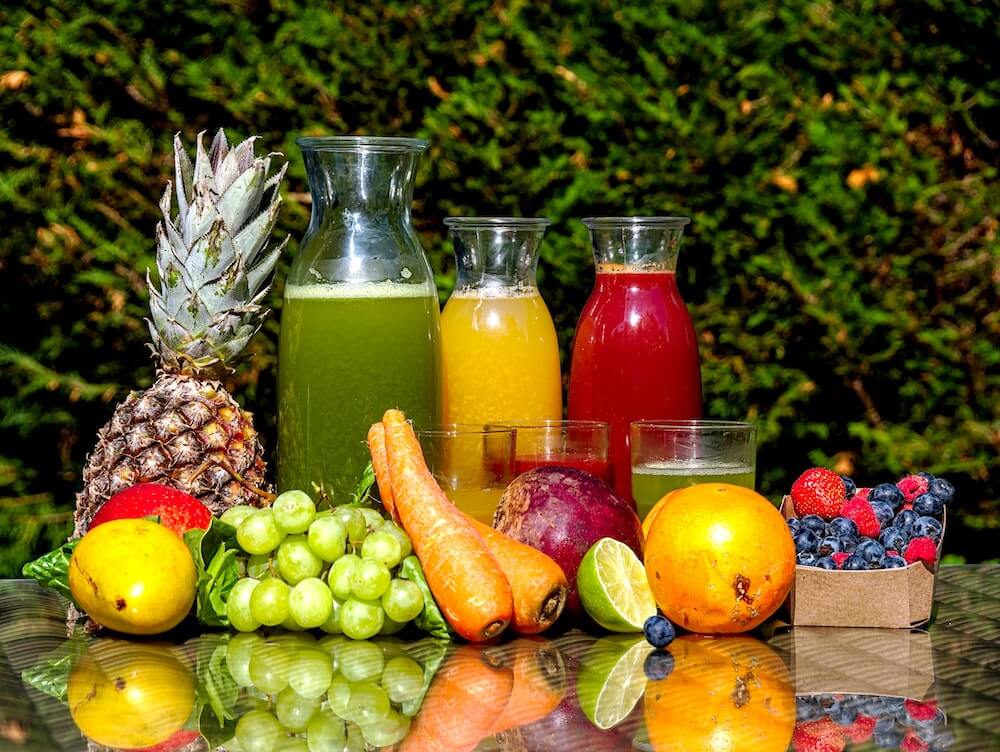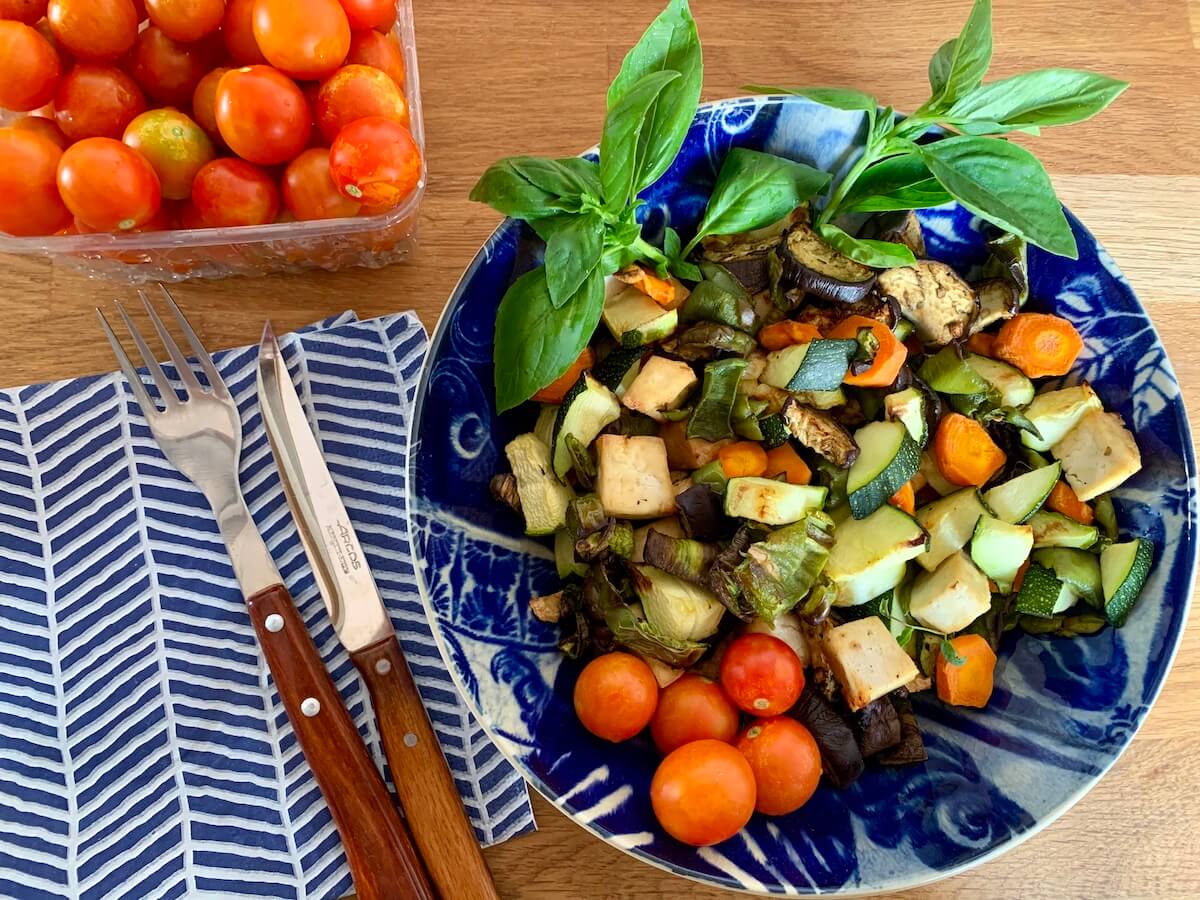Are you wondering how to go vegan if you don’t like vegetables? If this is you, you’re not alone. People all over the world eat a diet that’s low in veggies.
But don’t worry, taste buds don’t exist in a fixed state, they evolve to reflect new circumstances and the subconscious programming which is guiding them.
So you may think that you can’t enjoy being vegan because you don’t like vegetables, but the truth is, you can do it.
So let’s dive in and take a look at the different options.
Table of Contents
Bottom Line of How to Go Vegan If You Don’t Like Vegetables
- Start off by trying to include a few hidden vegetables in your regular diet. Things everybody loves like creamy mushroom pasta, nasi goreng, bami goreng with spicy peanut sauce on the side for example.
- At this stage, accept that you don’t like vegetables right now, but that your taste buds will evolve. Experiment with different ways of preparing the veggies, different spices, cooking methods, recipes etc. You may find that you love healthy fermented options like sauerkraut even if you don’t like plain veggies.
- Reduce the amount of processed foods you eat and especially refined sugars. As you do this, your taste buds will naturally compensate, and savoury foods (like vegetables) will start to taste sweeter.
- At the same time as you decrease the processed foods, increase your repertoire of easy vegan whole food meals that you like. Be patient with yourself. Prepare easy-to-like dishes that are reminiscent of your previous foods, like easy scalloped potatoes or vegan lasagne for example.
- Finally, cut out all the foods you no longer want to be eating – but give yourself time to grow into new foods. Changing your taste buds and habits takes time, but as long as you’re open to it, it will come.
- Support your journey with meditations, self hypnosis or hypnosis to learn to love vegetables.
Below is a simplified summary of the steps you can take to gradually become vegan.
There are so many aspects to deal with when you’re changing life-long habits, like craving cheese for example, but as long as you keep consistent and give yourself positive feedback, you will succeed.
Because you will give yourself no other options!
Slowly slowly, step by step. It doesn’t matter how long it takes or how many setbacks you have, if you’re travelling in the right direction, you’re doing great.
And you will arrive.
How to Track the 5 Phases to Going Vegan if You Don’t Like Vegetables
- Phase 1: if you like, buy a few vegan processed foods just to help you with the transition period. At this early stage begin by making vegan meals with a few ‘hidden’ vegetables only.
- Phase 2: Start to cook non-vegetable vegan whole foods like wholegrain rice, mung beans, lentils, chickpeas (and more) into your diet. This way you’re building up your options and level of confidence while eating a wfpb diet without forcing the veggies.
- Phase 3: Begin to disguise some extra vegetables in your recipes and you’ll discover new flavours emerging from things you thought you didn’t like. Start experimenting with a larger variety of vegetables.
- Phase 4: Reduce (or cut out) the processed foods you buy. With this change, your taste buds will compensate and food will taste sweeter (after roughly about 3 weeks) and in phase 4 you find yourself enjoying many vegetables you thought previously you couldn’t stand.
- Phase 5: The most exciting phase: now it’s just a matter of continuing to experiment and grow. Don’t expect to like all vegetables (although you might!) but keep your mind open. If you hate broccoli for example, you might find it tasty when roasted, or maybe you’ll be surprised and enjoy a creamy broccoli soup even though you didn’t expect to like it. In phase 5 things get exciting because you’re experimenting with EVERYTHING!
- Stay positive and recognise your progress.
- Take a multi vitamin and vitamin B12 daily.
Starting Point – You Don’t Like Any Vegetables
When you decide you want to be vegan, you’re looking at a great journey of change no matter what the circumstances.
For some it will be a matter of less adaptation and for others a radical change affecting everything they’re used to cooking. Where you starting from will affect the path you take.
If you’re used to eating a lot of meat or processed foods with potatoes on the side for example, in order to become vegan in a healthy way, you’ll need to reframe your whole meal plans.
Eating Vegan Processed Foods to Replace Meat
Avoid just substituting your favourite meat meals with their processed vegan equivalent. Not only are they much more expensive than their meat counterparts, they aren’t the most healthy way forward and they tend to be high in refined sugars, salt and sometimes, fat, as well as often having a long list of unnatural ingredients.
That doesn’t mean you can never enjoy them though, and coming from a high meat low-veg diet means it can be handy to have a few of these products up your sleeve.
Treat it like a weaning period. Use the processed foods as a transitioning tool rather than seeing them as your end-goal.
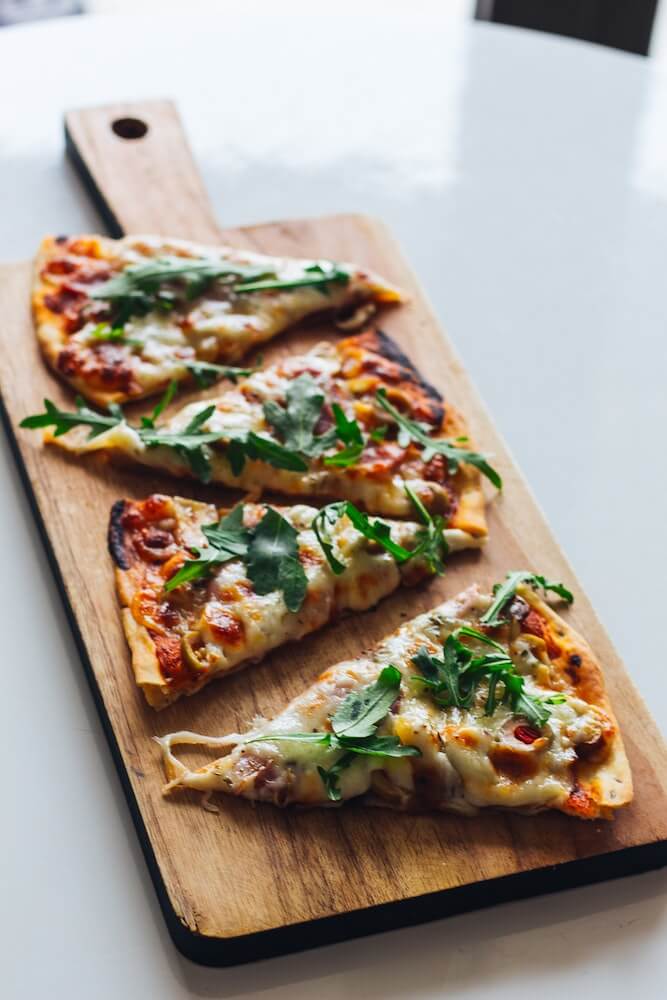
(Photo by Sahand Hoseini on Unsplash)
Mindset for Eating Vegan Whole Foods When You Don’t Like Vegetables
The most important thing in any change as big as this is to go at your own pace and congratulate yourself every step of the way.
If you think you’re going too slowly, reframe your thoughts and recognise the progress you’ve made.
Learning to cook, eat and enjoy whole foods is a process, especially if you eaten a lot of processed foods in the past. So set yourself a path to follow, maybe learning one new meal a week, or a month or whatever suits your schedule.
If you don’t like vegetables, there are still loads of healthy vegan foods you can enjoy. In the back of your mind, keep it open that you may start to like vegetables in the future. I can’t stress how important that slight shift is.
Your taste buds are conditioned by your experiences so far and any deeply help subconscious beliefs (like the fact that you don’t actually like vegetables right now) will affect the flavour your perceive.
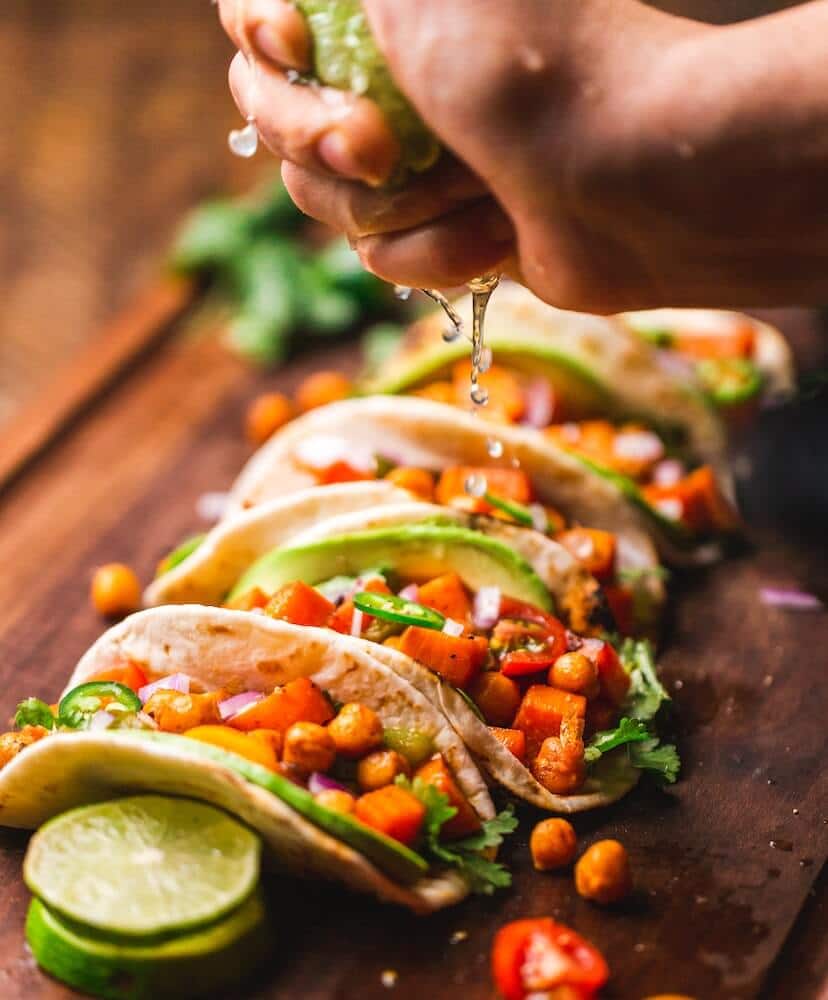
So during this phase, just open your mind to experimenting. Don’t try to force yourself to eat vegetables, but accept that there might be ways which you haven’t yet tried, and which you will actually enjoy.
In the meantime, eat lots of things you do like from the whole food vegan food list: rice, quinoa, chickpeas, nuts, beans, pasta and whatever vegetable comes into your range of being ok such as potatoes, sweet potatoes or whatever.
Finding Ways to Include Disguised Vegetables
As you get used to eating more and more whole foods you’ll find your taste buds naturally changing as your whole eating habits adapt to a vegan whole foods diet.
During this phase you can play with vegetables by making vegetable sauces, blended soups or dishes with a small bits of vegetables chopped into the recipe like noodle bami or rice nasi served with spicy satay sauce.
Fermented foods like kimchi and sauerkraut are incredibly health-boosting, full of nutrients and probiotics. If you like them, add them to your daily intake of food.
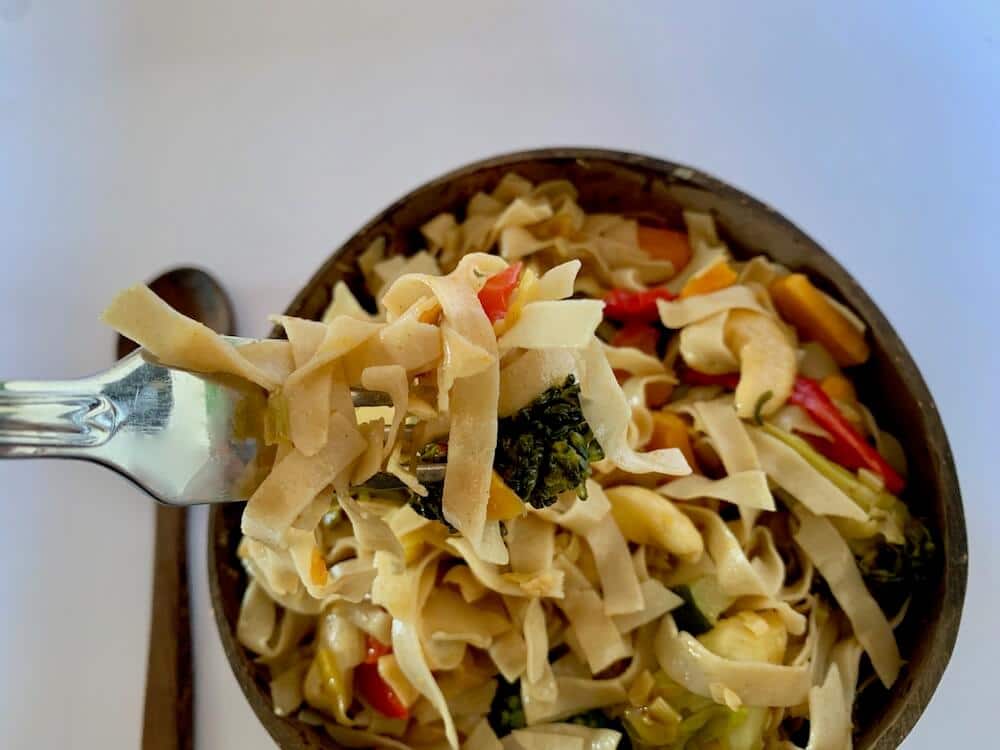
Discovering New Ways to Eat Vegetables and Actually Like Them
As you cut out processed foods and refined sugars, your taste buds compensate and you begin to taste vegetables differently. At this point you might actually enjoy some of them!
This isn’t so far fetched because the way of cooking the vegetables may be totally different to the way you experienced previously, for example if you used to be fed boiled veg on the side.
And also because your taste buds change when you cut out refined sugars from your diet.
And incidentally, on the topic of sugar, did you know that refined sugar is often filtered through bone char?
Yes, I know, it’s surprising isn’t it.
But regardless of the fact that it may not be vegan, you should really aim to cut out sugar from your diet anyway.
Because sugar creates a sugar addiction. And a sugar addiction will destroy your natural taste bud perception.
I mean seriously, food will taste different (and sweeter) when you give up added sugar.
Taste Buds Aren’t Fixed: They Change and Grow
Taste buds are Influenced by many factors, including smell, texture and sound. But one of the biggest effects on taste buds is the phycological association to a specific food type.
The Phycological Effect on Taste Buds
Imagine being offered a slice of caramel cake and as you reach out to take a piece you’re told that it’s made with something you find repulsive (think roasted toenails for example).
What’s the betting that you would have tasted it completely differently when you thought it was caramel than when you discovered something that repulsed you?
This is the power of perception and it’s effective with everything we eat, all the time. You only have to think about different cultures to see this in effect.
People from Spain visit the UK and complain that the food is disgusting. Why? Because it isn’t what they’re used to. Often the same vice versa.
This isn’t just about their taste buds being different, it’s about their perception of the food.
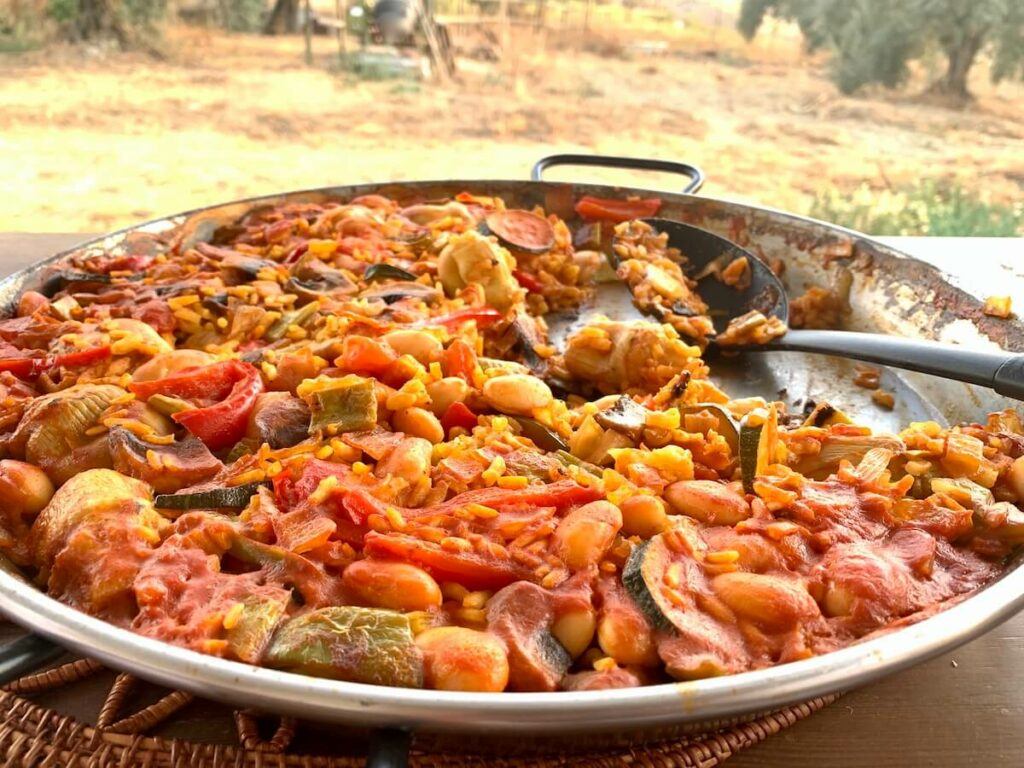
When I was young I hated olives. Then one day, extremely hungry after a long walk, I was offered some spaghetti in the mountains of Italy and yes, of course, the spaghetti came out covered in black olive paste.
Because of the situation and the wonderful hospitality of the family who were inviting me to spaghetti in their home, and because of my hunger, something which had previously tasted disgusting to me, suddenly tasted yummy.
It was the first step to liking all olives and gradually I tried more and more types until I could safely say that I liked all olives. My taste buds had changed and in the process they taught me a big lesson: we aren’t held captive by our taste buds. We can choose for them to change if we want to.
If you served me something and told me that it was meat, I can guarantee you that it would taste disgusting to me, because I don’t want to eat meat. Not on a conscious or a subconscious level.
So if you have this kind of deep belief around vegetables but it isn’t in alignment with what you want anymore, you can choose to change it. Not overnight, but gradually, over time.
Use Hypnosis to Help You Remove any Phycological Blocks Against Vegetables
Your Taste Buds Change When You Give Up Processed Sugar
Ask yourself, do you feel better physically since switching to a vegan diet? If the answer isn’t a resounding, 100% yes, then consider what you can change to make your diet more healthy.
And the number one culprit is sugar. Give up sugar and your taste buds will reward you lavishly.
As mentioned above, an important factor is sugar addiction. Although you may not realise it, there’s a high chance that you are addicted to the sugar which has been fed to you in processed foods and sugary drinks (or alcohol).
When you stop eating refined sugar, your taste buds become sharper and pick up more flavour in the fruits and veggies that you eat.
Cutting out refined sugar can be difficult in the first few weeks and can give you withdrawal symptoms.
But persevere, because once you’ve broken through the initial withdrawal symptoms you’ll find your food tasting so completely different it’s almost unbelievable.
Suddenly your food will taste more delicious than it ever has before.
Try Different Cooking Methods
Apart from all the points above, we come down to the brass tacks. How to cook the vegetables which you don’t like in the beginning?
Firstly, make sure you experiment with different cooking methods. So many people say ‘I hate cabbage’ when they’ve only ever tried it boiled to death. Changing the cooking method changes the flavour.
It can be that roasted veggies taste great to you.
Or maybe by cooking them in the air fryer. Or a stir-fry mixed with rice, where lots of veggies get mixed together with some garlic and chilli or other flavourings of choice.
All these ways of eating vegetables are so different that until you’ve tried them, you can’t really say if you like them or not. I mean boiled carrots have nothing to do with roasted carrots or sweet potato and carrot soup.
Vegan Meal Suggestions if You Don’t Like Vegetables
- Nasi Goreng Style Rice
- Bami Goreng Style Noodles
- Easy homemade black bean burger
- Easy lentil dahl
- Easy tofu snacks
Serve Sauces on Your Veggies
Another way to help change your perception of vegetables is to serve them with your favourite vegan sauce, whether that be a spicy satay sauce, creamy cashew sauce, instant cilantro sauce or a homemade pesto or tomato sauce.
Serving with sauces can be a game changer.
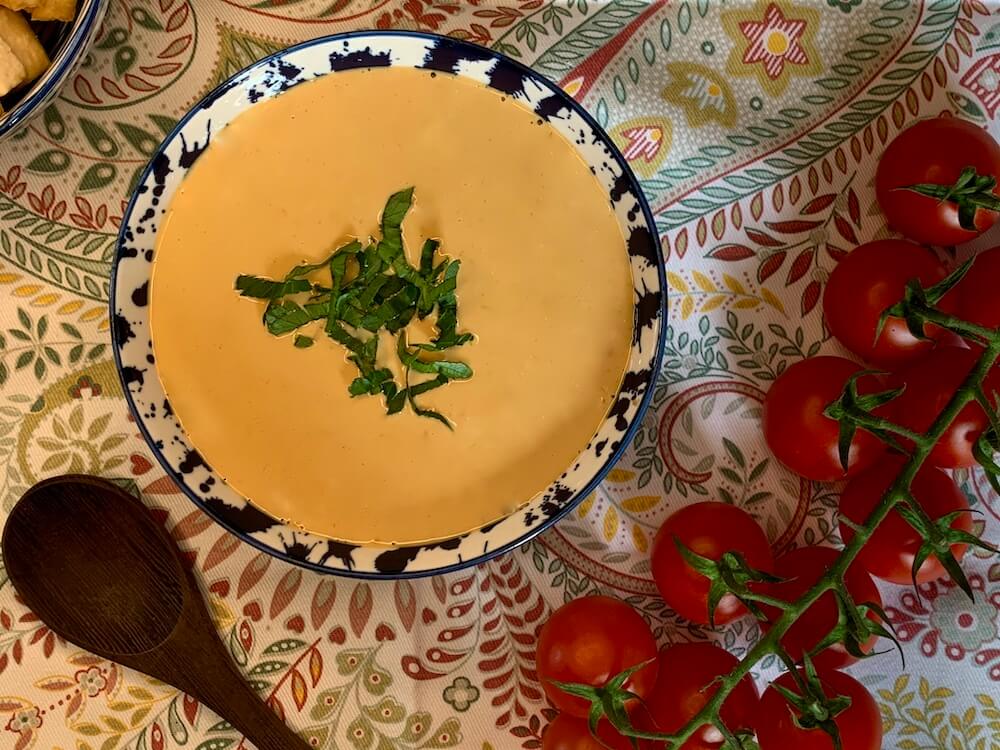
Most Important Point on How to Go Vegan if You Don’t Like Vegetables: Don’t Give Up!
Don’t give up on changing your taste buds.
Don’t beat yourself up if you still don’t like cauliflower. (By the way, here’s a recipe for cooking cauliflower and making it taste great even if you don’t like cauliflower!)
Just keep going, keep experimenting, and keep an open mind.
You’ll find that you will grow to love some things quicker than others. That’s just natural and to be expected.
Remember that your subconscious beliefs drive your conscious behaviour, so if you change your subconscious belief deep down to really recognise that you find flesh repulsive and vegan food attractive, it’s going to have a knock-on effect on everything.
I can guarantee that everybody who hates all vegetables actually doesn’t want to like vegetables on a subconscious level. They believe that they’re doing the best thing for themselves by not eating veggies.
There’s nobody alive who hates all vegetables and truly wants to eat them (subconsciously, not consciously).
Because that is mutually exclusive. When you subconsciously know that you want to be vegan, you’ll start to experience new flavours and exciting new tastes, even from foods you previously thought you didn’t like.
But it takes time. Give it time and be kind to yourself.
You’re doing great.
For more vegan FAQ click here.
Take Daily Vitamins
When you go vegan it’s a good idea to cover your bases and take a great daily vitamin supplement plus a vitamin B12 every day. You may also benefit from taking a vegan omega 3. I am not a qualified nutritionalist and this is just my opinion.
Please get advice from a vegan-friendly nutritionalist if you have any doubts.
That way you can be sure that even if you’re not eating as many vegetables as you would like, you’re still getting the essentials.
Remember, taking vitamins isn’t the same as eating a balanced diet, so you still want to aim at including a wide array of veggies in your diet.
And you’re gonna love it when one day you realise that you just adore that broccoli rice or sweet potato in coconut sauce, or whatever dish is the first to grab your inspiration.
Conclusion on How to Go Vegan if You Don’t Like Vegetables
The most important things to do are 1. make the firm decision to be vegan 2. go slowly, absolutely knowing in your gut that you’re going to find some delicious new foods which you’ll love 3. always reward yourself, be excited and be positive.
This is a positive journey!
I hope this post helps you to know that you can do it. It’s a balance of patience and faith that it will all be absolutely ok in the end: your taste buds will change.
And you will have a glorious whole foods plant based diet that makes you happy every day!

